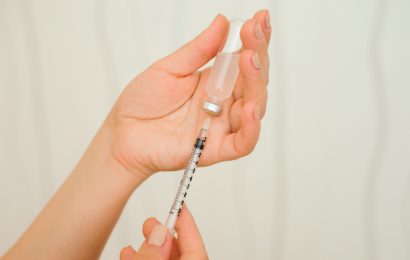The link between diabetes and depression is well established: Studies show that people with diabetes are three to four times as likely to have major depression as people without diabetes, and depression appears to increase the risk of Type 2 diabetes in certain populations. Depression is also known to increase the risk of complications in people with Type 2 diabetes. Now, new research indicates that treating people for both depression and diabetes simultaneously can significantly improve both conditions.
Depression may affect a person’s ability to carry out diabetes self-management tasks, such as taking medicines and monitoring blood glucose. And the stress of managing diabetes can contribute to an increased risk of depression. (There may be other biological factors, such as inflammation, contributing to the association as well.)
To see whether an integrated treatment approach to Type 2 diabetes and depression could improve people’s blood glucose control and depression as well as their adherence to their diabetes and depression medicines, researchers from the University of Pennsylvania School of Medicine randomly assigned 180 people with Type 2 diabetes to either integrated care or usual care. The integrated care group received the usual primary care along with a short “medication adherence program.”
In the medication adherence program, the participants and their doctors worked along with integrated care providers to identify and deal with issues that might interfere with a person’s ability to take his medicines as advised, such as the price of the medicine or a lack of social support. The managers then crafted tailored programs to help these individuals stick to their diabetes medicine and antidepressant regimens. Electronic monitors were affixed to the pill bottles allowing the investigators to determine exactly when participants took their medicines over the course of the 12-week study.
At the end of the 12 weeks, 60.9% of those receiving the integrated treatment approach had improved their blood glucose levels, compared to only 35.7% of people receiving standard therapy. Moreover, 58.7% of participants in the integrated treatment group showed signs of remission in their depression, compared to only 30.7% of those in the usual treatment group.
“Though research demonstrates the link between depression and diabetes, few integrated programs are being implemented in practice,” lead author Hillary Bogner, MD, MSCE, noted. “Our results demonstrate that integrated treatment for both conditions, combined with a brief program focused on adherence for primary care patients with Type 2 diabetes and depression can result in a significant improvement in clinical outcomes. We hope the findings will encourage the adoption of adherence programs aimed at improving outcomes.”
To learn more about the research, read the article “Treatment for Diabetes and Depression Improves Both, Researchers Say” or see the study in The Annals of Family Medicine. And for more information about managing depression, see the articles in our “Emotional Health section” or visit the depression section on the Web site of the National Institute of Mental Health.




